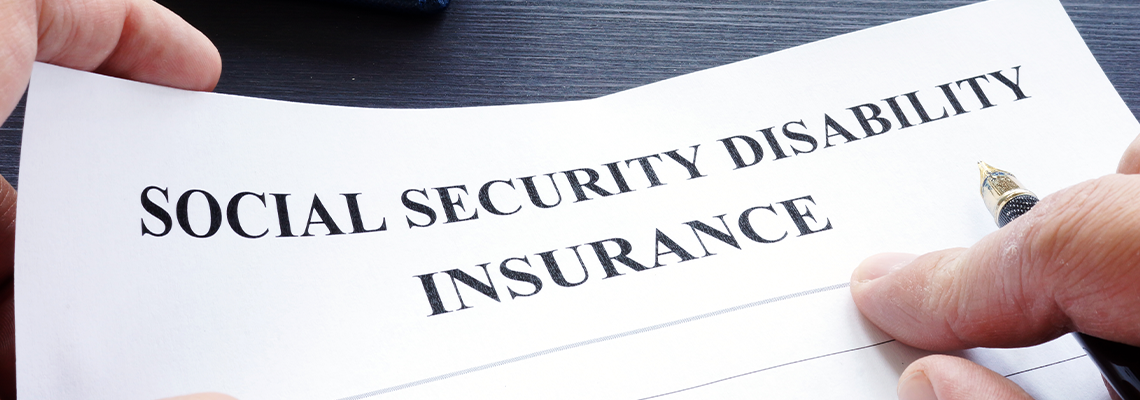
Can a Favorable SSDI Decision Be Reversed?
Technically, yes, a favorable SSDI decision can be overturned. However, it's not a common occurrence. The Social Security Administration (SSA) has the authority to periodically review and reevaluate disability cases. This is done through a process called a Continuing Disability Review (CDR).
The goal of a CDR is to determine whether your medical condition has improved to the point where you no longer meet the SSA's disability guidelines. If the SSA decides that you are now able to work, they may terminate your disability benefits.
Gordon, Wolf & Carney is a reputable law firm located in Maryland, serving clients nationwide. With a cumulative legal experience of over 100 years, we are dedicated to sharing valuable insights. In this article, we unpack the answer to a commonly asked question: Can a favorable decision on Social Security Disability Insurance (SSDI) be reversed?
This topic holds significance for individuals relying on these benefits for critical financial support. Let's dive in.
Understanding SSDI
First things first—we need a base understanding of SSDI. SSDI stands for Social Security Disability Insurance. It's designed to provide financial support to individuals who are unable to work due to a disability. As of February 2021, the Center on Budget and Policy Priorities reported that 8.2 million Americans receive disabled-worker benefits from Social Security.
While getting approved for SSDI can be quite a process, once you receive that approval, it brings a sense of relief.
But what happens if that approval gets reversed? Is that even possible? These are questions we're here to address.
What Triggers a Reversal?
The SSA needs substantial evidence to support its decision to reverse a favorable SSDI ruling. They can't terminate benefits without a valid reason. During the CDR process, you'll have the opportunity to provide medical evidence and other documentation to support your continued eligibility for benefits.
The Appeal Process
If your SSDI decision gets reversed, you have the right to appeal. You can request a reconsideration of the decision, present additional evidence, and even request a hearing before an administrative law judge. We can't stress enough how important it is to consult with experienced SSDI attorneys during this appeals process. It ensures that all necessary steps are taken to protect your rights and maximize your chances of success.
The Role of the Appeals Council
Understanding the role of the Appeals Council is important when dealing with Social Security Disability Insurance (SSDI) cases. In short, the Appeals Council is a crucial part of the appeals process if you're not satisfied with the decision made by an Administrative Law Judge (ALJ).
When a case comes before the Appeals Council, they have the power to review any ALJ decisions. This means they can either grant benefits that an ALJ denied or deny benefits that an ALJ granted. Now, we know this might sound a bit unsettling, especially if you've already received a favorable ALJ decision. But let's put your mind at ease.
It's incredibly rare for a case to be selected for review by the Appeals Council. Even less likely is the chance of a disability approval being overturned. In fact, the percentage of cases pulled for such review is very small, and the chance of a disability approval being overturned is also minuscule.
Just like the Disability Quality Branch (DQB) selects random cases for quality review, the Appeals Council reviews the initial approval or denial decisions made by DDS disability claims examiners. So, while it's technically possible for a favorable ALJ decision to be overturned, it's highly unlikely.
Actions to Take if Notified of a Review
If you're notified that your favorable SSDI decision is being reviewed by the Appeals Council, don't panic. This is a normal part of the process, and it's important to remember that the chance of a favorable decision being overturned is generally quite small. However, there are some steps we recommend taking to protect your interests:
First and foremost, respond promptly to any correspondence from the Social Security Administration (SSA). It's crucial not to ignore these letters. They often require a response within a certain timeframe, and failure to respond could be detrimental to your case.
Next, gather all recent medical evidence related to your disability. This includes recent doctor's notes, hospital records, lab results, and any other relevant documentation. Remember, the SSA is checking to see if your condition has improved, so it's crucial to have up-to-date evidence showing that you still meet the eligibility requirements for disability benefits.
Consider consulting with us or another legal professional familiar with SSDI cases. While it's possible to navigate this process on your own, having experienced attorneys by your side can provide peace of mind and ensure you're taking all the right steps. We can help review the SSA's correspondence, gather necessary documentation, and effectively present your case.
Lastly, continue to follow your prescribed treatment plan. Regular medical check-ups and compliance with treatments can demonstrate that your condition hasn't improved to the point where you can return to work.
Knowledgeable Legal Counsel: Gordon, Wolf & Carney
While it is possible for a favorable SSDI decision to be reversed, it's not a common occurrence. The SSA needs substantial evidence to support its decision, and individuals have the right to appeal if their benefits are terminated. Having strong medical documentation and ongoing treatment records is key.
If you're facing a potential reversal, it's best to get legal advice. Our team at Gordon, Wolf & Carney is here to help. With our knowledge and esteemed reputation, we're passionate about taking on complex cases and guiding our clients through these challenging situations. Reach out to us today. From our Maryland law firm, we work with clients across the country.